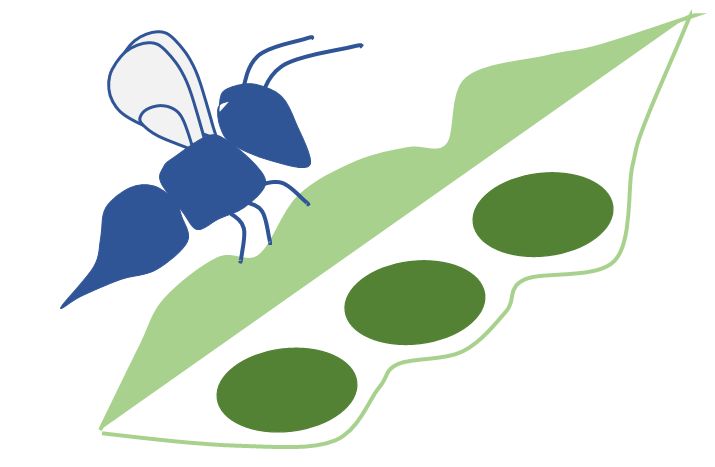
Donor: McKnight Foundation
Value: $450,000
Partners: NRI, RBG Kew, NM-AIST, LUANAR
Project profile on the McKnight CCRP website
The overall goal of the project is to improve food security in Malawi and Tanzania through the development and optimization of plant-based pest management technologies that are simple, effective, reliable, safe, economic and appropriate for the control of field and storage insect pests of beans, pigeon pea, cowpeas and other legumes and commercially and nutritionally important crops grown by small holder farmers. The technologies will be based on widely distributed and easily cultivated plant species such as Tephrosia vogelii, Dysphania ambrosioides, Tithonia diversifolia, Lippia javanica, Bidens pilosa, Lantana camara, Vernonia amygdalina and Tagetes minuta as well as indigenous woody plants such as Zanha africana and Securidaca longepedunculata. In carrying out this broader activity, we plan to build technical capacity by supporting a PhD student (registered at NMAIST) and Masters students (at least two registered at NMAIST and at least two registered at LUANAR) who will have opportunities to carry out a range of lab, field and farm based research cutting across disciplines of natural product chemistry, entomology, chemical ecology, insect behaviour as well as experimental design, data collection, statistical analysis, working with farmers and using various analytical tools. A second goal is to help understand the impact of using pesticidal plants on wider ecosystem services and how their use affects non-target organisms (pollinators, parasitoids, predators) to establish their suitability for integration into agro-ecological intensification programmes.
The main objective is to create a Farmer Research Network (FRN) operating in the Kilimanjaro Region of Tanzania and the Central Region of Malawi by bringing together existing farmer groups and helping to create new groups of farmers who are willing to work together to help further optimise the use and development of pesticidal plants. The FRN will be helped to increase their own use of pesticidal plants for pest control so that farmers can observe differences, themselves, understand the limitations of plant extracts and identify aspects of use that can be further optimised through their own activities.
Other objectives are to carry out research to support post-graduate research degrees that also supports the development of the FRN. This work will look at other aspects of PP use on soil fertility, the control of fungal and bacterial pathogens, as potential phyto-stimulants, impact on pollinators/predators both through PP use on crops and in terms of field margin biodiversity support to beneficials, all of which will help generate novel information on how pesticidal plants can be integrated in to agro-ecological intensification, reduce crop production costs and increase crop yields for small holder farmers.


